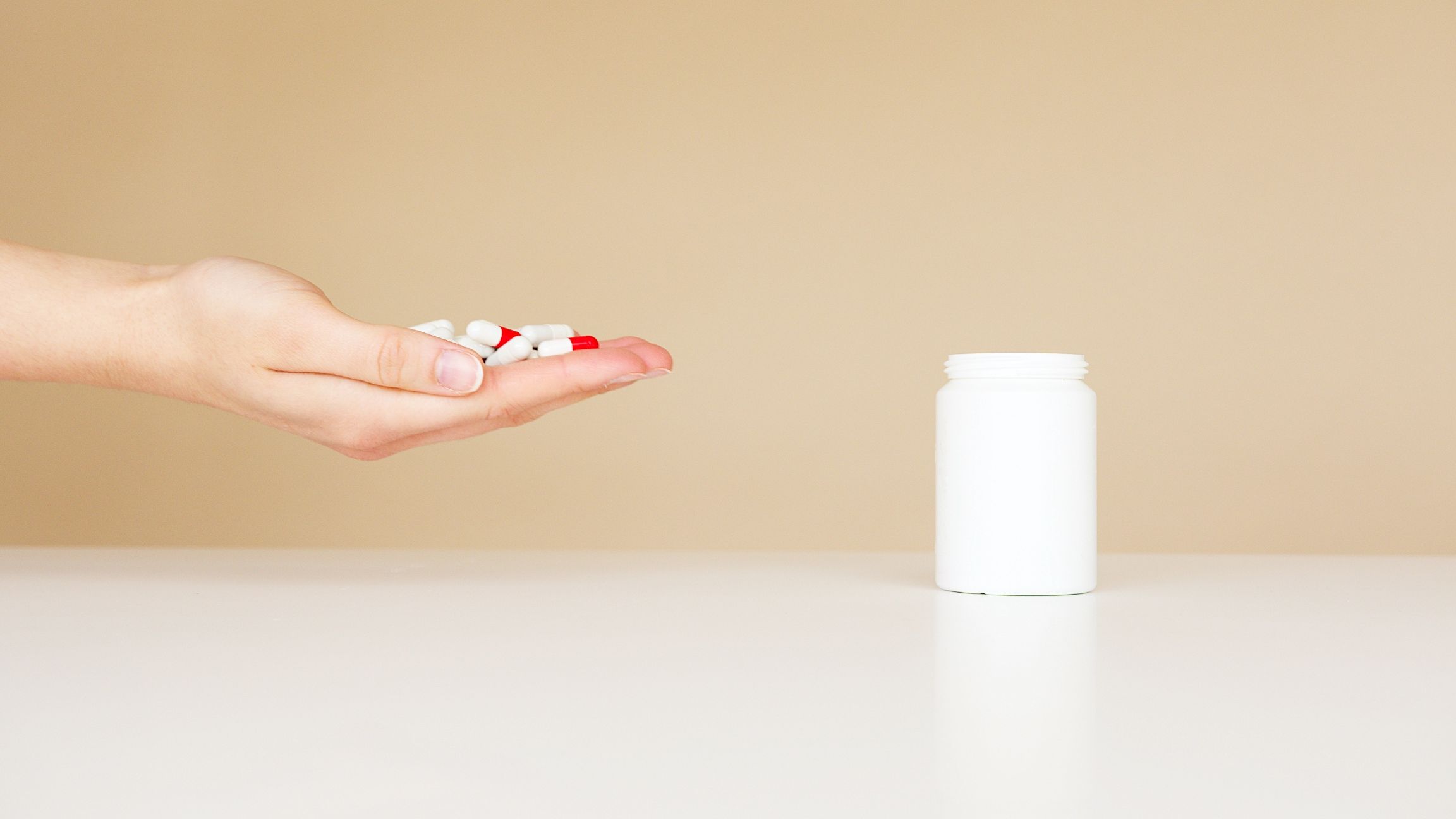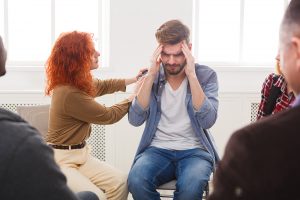
Vicodin is a prescription medication that can be quite helpful in reducing moderate or severe physical pain. It is among the class of opioid medications that act as a central nervous system depressant, helping people feel more relaxed. It’s made up of both hydrocodone, which is a synthetic opioid, as well as acetaminophen, a common pain reliever.
Though it is a helpful pain reliever, Vicodin has a downside in that it’s highly addictive. Taken as prescribed short-term, the likelihood of addiction isn’t that high. However, those that take Vicodin long-term or abuse the drug for the desired effects have a higher chance of becoming dependent on or addicted.
The high rates of opioid addiction are no secret. The rate of addiction has been increasing steadily year after year. In fact, around 10.3 million people misused or abused opioids in 2018, according to the Substance Abuse And Mental Health Services Administration.
Vicodin Addiction Signs
Perhaps you are wondering if you or a loved one is addicted to Vicodin or another opioid prescription drug. There are certainly some common signs of addiction, but symptoms can also vary from person to person.
The Following Are Common Signs That You May Be Addicted To Vicodin:
- Not being able to stop using the drug when you want
- Experiencing depression
- Using Vicodin without a prescription
- Stealing Vicodin from family members or friends
- Buying Vicodin on the streets and using it
- Neglecting your responsibilities
- Lying about how much of the drug you’re using
- Doctor shopping to get more prescriptions
- Lying about how much pain you’re in to get more of the drug
- Continuing to use Vicodin even though you’re experiencing negative consequences
- Hiding your prescription
- Intense cravings for more
- Mixing the drug with other drugs, such as alcohol to increase the effects
- Isolating
- Not doing the things that you used to love doing
- Experiencing health issues because of your drug use
- Feeling tired all the time or nodding off
- Spending a lot of time ruminating about the drug
- Feeling like you can only function well if you’re using Vicodin
- Increased anxiety
- Feeling quite agitated or irritable
- Shameful about how much of the drug you’re using
- Experiencing paranoia, delusions, or hallucinations

Vicodin’s Short-Term Effects
When you use Vicodin as prescribed, you may feel less pain in the body and a sense of calmness. You may also feel a bit of euphoria, depending on your dosage. The desired goal is to reduce the feeling of pain in the body.
However, it’s easy to come to enjoy the intense relaxed feeling of euphoria. However, this could cause you to want to keep using the drug even when you don’t need it.
Don’t fall for it.
Other short-term effects of Vicodin use on the body are:
- Feeling tired
- Constipation
- Slower heart rate
- Nausea or vomiting
- Feeling lightheaded
- Shallow respirations
- Difficulty urinating
- Stomachache
Vicodin’s long-term effects:
- Chronic constipation
- Digestive issues
- Feeling an increased amount of pain
- Trouble with your hearing
- Kidney, brain or liver damage
- Cardiovascular problems
Can You Overdose On Vicodin?
Yes, you can overdose on Vicodin.
Typically, when you want to stop using Vicodin after you’ve become addicted to it, you will feel some withdrawal symptoms. The intensity and duration vary depending on various factors, like how long you’ve been using the drug, the dosage, and frequency taken.
The best way to undergo Vicodin withdrawal is by attending a medical detox in a residential treatment program. This gives you the benefit of being surrounded by substance abuse professionals that can monitor and assist you through the uncomfortable withdrawal symptoms.
To overdose means to take an excessive or dangerous dose of a drug. In the case of Vicodin overdose, if you take more than your body can handle, you can experience severe health problems, including falling unconscious or dying.
Don’t Stop Taking Vicodin Abruptly
If you are addicted to Vicodin, know that the best way to stop taking the drug is through tapering off it little by little. This gradual reduction reduces the intensity of withdrawal symptoms. However, it’s advised that you only undergo a taper schedule under the care of a medical professional.
Overdose concerns rise if you’ve started weaning yourself off the drug, or stopped completely, and then start using the drug again at the same or similar dose you were on before detoxing. Since your tolerance level drops as you reduce your dosage, the reintroduction of a higher dose can be too much of a shock to your body, causing various health issues and perhaps even death.
Again, this is why it is important to undergo addiction recovery under the supervision of substance abuse professionals at either a residential or outpatient treatment center.
Common Vicodin withdrawal symptoms include:
- Stomach cramping
- Headache
- Body aches
- Nausea
- Vomiting
- Intense cravings for more of the drug
- Diarrhea
- Flu like symptoms such as sweating, runny nose, fever
- Anxiety or depression
- Feeling agitated or restless
- Muscle pain
- Chills
Vicodin Addiction Treatment
Here at Into Action Recovery Society, we are dedicated to providing evidence-based, individualized treatment for Vicodin addiction. Our staff is compassionate and highly trained to help you or your loved one safely get free from Vicodin addiction and go on to create a life that they truly desire.
We offer a variety of short and long-term recovery programs that can help you regardless of where you are on your sobriety journey. Included in treatment are detox services that will help you safely get through the withdrawal process. We also offer a residential and transitional program to help you build a strong recovery foundation

Sober Living Program
If you are in need of a sober living program, we have an excellent long term sober living program that allows you to get stronger in recovery before moving back home.
Regardless of what treatment program you choose, you will have access to:
- An addiction specialist to treat the addiction
- An individual counselor to help you with any mental or emotional health issues you may be struggling with
- Support groups
- Group therapy
Whatever your treatment needs are, we are here to assist you. Feel free to contact us today, as we’d love to address any questions or concerns you have.